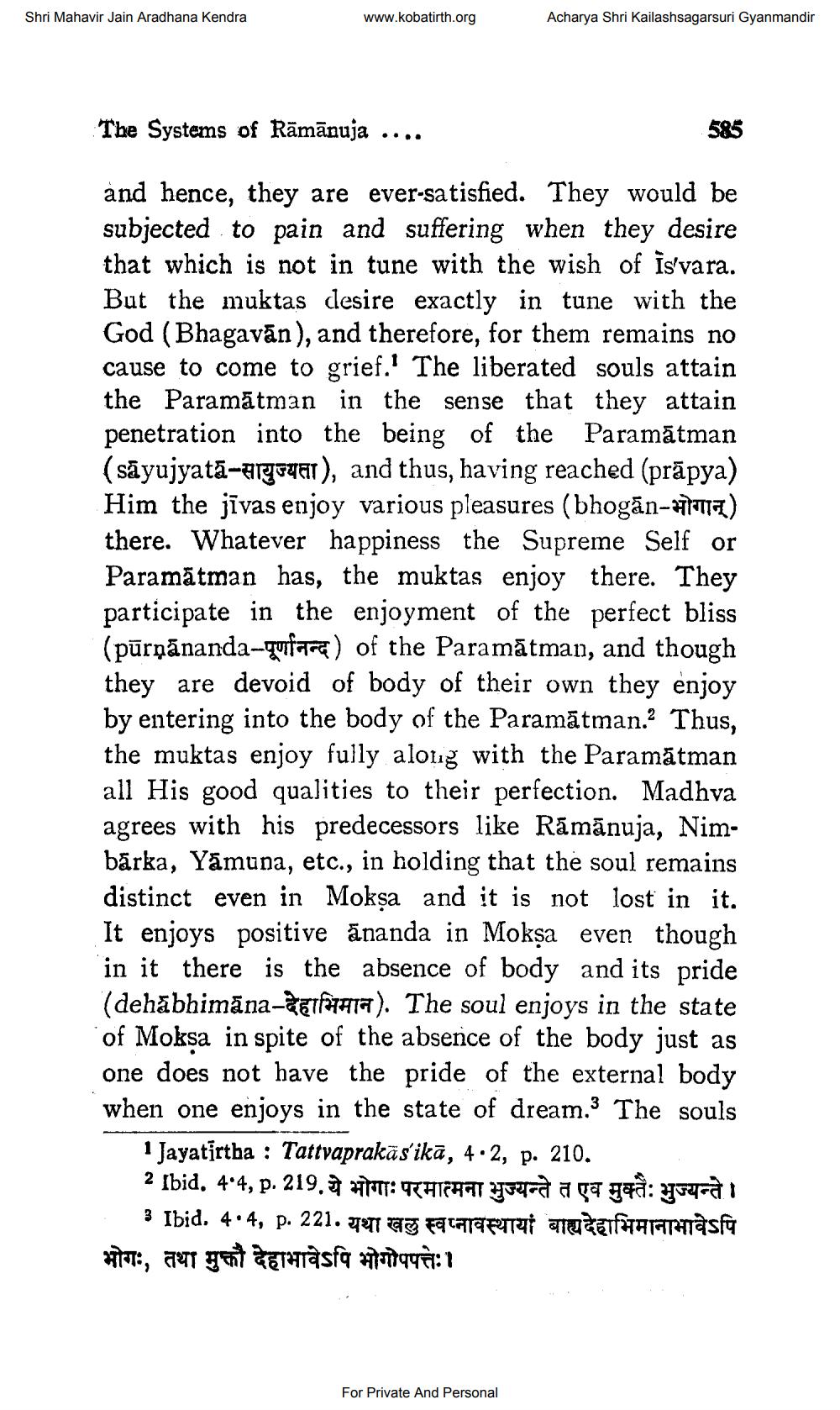________________
Shri Mahavir Jain Aradhana Kendra
www.kobatirth.org
Acharya Shri Kailashsagarsuri Gyanmandir
The Systems of Rāmānuja ....
585
and hence, they are ever-satisfied. They would be subjected to pain and suffering when they desire that which is not in tune with the wish of is/vara. But the muktas desire exactly in tune with the God (Bhagavān), and therefore, for them remains no cause to come to grief.' The liberated souls attain the Paramātman in the sense that they attain penetration into the being of the Paramātman (sāyujyatā-argitar), and thus, having reached (prāpya) Him the jīvas enjoy various pleasures (bhogān-71117) there. Whatever happiness the Supreme Self or Paramātman has, the muktas enjoy there. They participate in the enjoyment of the perfect bliss (pārņānanda-quara) of the Paramātman, and though they are devoid of body of their own they enjoy by entering into the body of the Paramātman.? Thus, the muktas enjoy fully along with the Paramātman all His good qualities to their perfection. Madhva agrees with his predecessors like Rāmānuja, Nimbārka, Yamuna, etc., in holding that the soul remains distinct even in Moksa and it is not lost in it. It enjoys positive ānanda in Mokşa even though in it there is the absence of body and its pride (dehābhimāna-ETAT). The soul enjoys in the state of Moksa in spite of the absence of the body just as one does not have the pride of the external body when one enjoys in the state of dream. The souls
1 Jayatirtba : Tattvaprakās'ikā, 4.2, p. 210. 2 Ibid. 404, p. 219.7 ITT: CHICHAT FUra a ga gea: yrardi
3 Ibid. 4.4, p. 221. Ten 3 Fataranta JURETHAT THOST भोगः, तथा मुक्तौ देहाभावेऽपि भोगोपपत्तेः।
For Private And Personal




